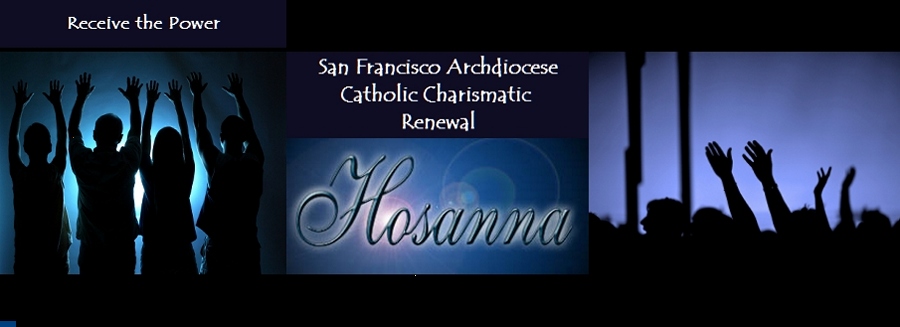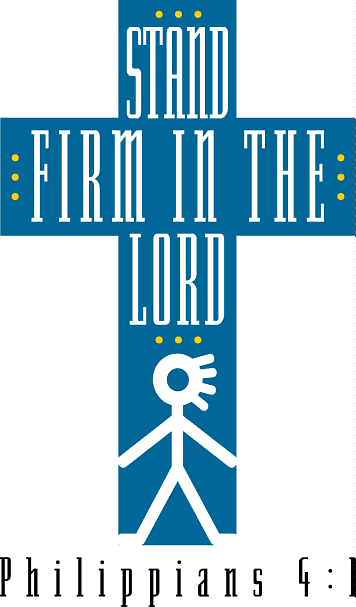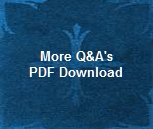|
|




Prayer Groups 1st Friday Mass Young Adults Teens Kids Prayer Requests Holy Spirit Conference Donations
Life For The World "Most Holy Father, I am Inelida. I am 17 years old, an assistant to the Scout Cub Master in the Parish of St Gregory Barberigo, and I am studying at the "Mario Mafai" senior secondary art school. In your Message for the 21st World Youth Day you said: "There is an urgent need for the emergence of a new generation of apostles anchored firmly in the Word of Christ" ...what in your opinion are the greatest challenges to face in our time; what does the Lord expect of us, Your Holiness?" We all ask ourselves what the Lord expects of us. It seems to me that the great challenge of our time - this is what the Bishops on their ad limina visits tell me, those from Africa, for example - is secularization: that is, a way of living and presenting the world as "si Deus non daretur", in other words, as if God did not exist. There is a desire to reduce God to the private sphere, to a sentiment, as if he were not an objective reality. As a result, everyone makes his or her own plan of life. But this vision, presented as though it were scientific, accepts as valid only what can be proven. With a God who is not available for immediate experimentation, this vision ends by also injuring society. The result is in fact that each one makes his own plan and in the end finds himself opposed to the other. As can be seen, this is definitely an unliveable situation. We must make God present again in our society. This seems to me to be the first essential element: that God be once again present in our lives, that we do not live as though we were autonomous, authorised to invent what freedom and life are. We must realize that we are creatures, aware that there is a God who has created us and that living in accordance with his will is not dependence but a gift of love that makes us alive. Therefore, the first point is to know God, to know him better and better, to recognize that God is in my life, and that God has a place. The second point - if we recognize that there is a God, that our freedom is a freedom shared with others and that there must consequently be a common parameter for building a common reality - the second point, I was saying, presents the question: what God? Indeed, there are so many false images of God, a violent God, etc. The second point, therefore, is recognizing God who has shown us his face in Jesus, who suffered for us, who loved us to the point of dying, and thus overcame violence. It is necessary to make the living God present in our "own" lives first of all, the God who is not a stranger, a fictitious God, a God only thought of, but a God who has shown himself, who has shown his being and his face. Only in this way do our lives become true, authentically human; hence, the criteria of true humanism emerge in society. Here too, as I said in my first answer, it is true that we cannot be alone in building this just and righteous life but must journey on in the company of good and upright friends, companions with whom we can experience that God exists and that it is beautiful to walk with God; and to walk in the great company of the Church, which presents to us down the centuries God who speaks, who acts, who accompanies us. Therefore, I would say: to find God, to find God revealed in Jesus Christ, to walk in company with his great family, with our brothers and sisters who are God's family, this seems to me to be the essential content of this apostolate of which I spoke. |
The Word of God Your Holiness, I am Simon from St Bartholomew's Parish. I am 21 years old and am studying chemical engineering at Holy Wisdom University in Rome. ... In the face of anxieties and uncertainties about the future, and even simply when I find myself grappling with the daily routine, I also feel the need to be nourished by God's Word and to know Christ better in order to find answers to my questions. ... How can I understand that what I read is the Word of God which calls my life into question? Thank you. To begin, I shall answer by stressing a first point: it must first of all be said that one must not read Sacred Scripture as one reads any kind of historical book, such as, for example, Homer, Ovid or Horace; it is necessary truly to read it as the Word of God, that is, entering into a conversation with God. One must start by praying and talking to the Lord; "Open the door to me". And what St Augustine often says in his homilies: "I knocked at the door of the Word to find out at last what the Lord wants to say to me", seems to me to be a very important point. One should not read Scripture in an academic way, but with prayer, saying to the Lord: "Help me to understand your Word, what it is that you want to tell me in this passage". A second point is: Sacred Scripture introduces one into communion with the family of God. Thus, one should not read Sacred Scripture on one's own. Of course, it is always important to read the Bible in a very personal way, in a personal conversation with God; but at the same time, it is important to read it in the company of people with whom one can advance, letting oneself be helped by the great masters of "Lectio divina". For example, we have many beautiful books by Cardinal Martini, a true master of "Lectio divina", who helps us enter into the life of Sacred Scripture. Nevertheless, one who is thoroughly familiar with all the historical circumstances, all the characteristic elements of the past, always seeks to open the door to show that the words which appear to belong to the past are also words of the present. These teachers help us to understand better and also to learn how to interpret Sacred Scripture properly. Moreover, it is also appropriate in general to read it in the company of friends who are journeying with me, who are seeking, together with me, how to live with Christ, to find what life the Word of God brings us. A third point: if it is important to read Sacred Scripture with the help of teachers and in the company of friends, travelling companions, it is particularly important to read it in the great company of the pilgrim People of God, that is, in the Church. Sacred Scripture has two subjects. First and foremost, the divine subject: it is God who is speaking. However, God wanted to involve man in his Word. Whereas Muslims are convinced that the Koran was verbally inspired by God, we believe that for Sacred Scripture it is "synergy" - as the theologians say - that is characteristic, the collaboration of God with man. God involves his People with his Word, hence, the second subject - the first subject, as I said, is God - is human. There are individual writers, but there is the continuity of a permanent subject - the People of God that journeys on with the Word of God and is in conversation with God. By listening to God, one learns to listen to the Word of God and then also to interpret it. Thus, the Word of God becomes present, because individual persons die but the vital subject, the People of God, is always alive and is identical in the course of the millenniums: it is always the same living subject in which the Word lives. This also explains many structures of Sacred Scripture, especially the so-called "rereading". An ancient text is reread in another book, let us say 100 years later, and what had been impossible to perceive in that earlier moment, although it was already contained in the previous text, is understood in-depth. And it is read again, ages later, and once again other aspects, other dimensions of the Word are grasped. So it was that Sacred Scripture developed, in this permanent rereading and rewriting in the context of profound continuity, in a continuous succession of the times of waiting. At last, with the coming of Christ and the experience of the Apostles, the Word became definitive. Thus, there can be no further rewriting, but a further deepening of our understanding continues to be necessary. The Lord said: "The Holy Spirit will guide you into depths that you cannot fathom now". Consequently, the communion of the Church is the living subject of Scripture. However, here too the principal subject is the Lord himself, who continues to speak through the Scriptures that we have in our hands. I think that we should learn to do three things: to read it in a personal colloquium with the Lord; to read it with the guidance of teachers who have the experience of faith, who have penetrated Sacred Scripture: and to read it in the great company of the Church, in whose liturgy these events never cease to become present anew and in which the Lord speaks with us today. Thus, we may gradually penetrate ever more deeply into Sacred Scripture, in which God truly speaks to us today. |
The theme song for the XXIII WYD08 is Receive the Power, written by Guy Sebastian and Gary Pinto. |

